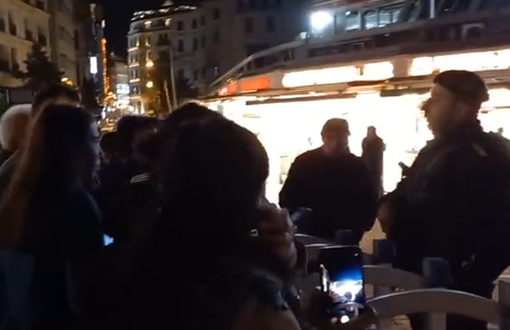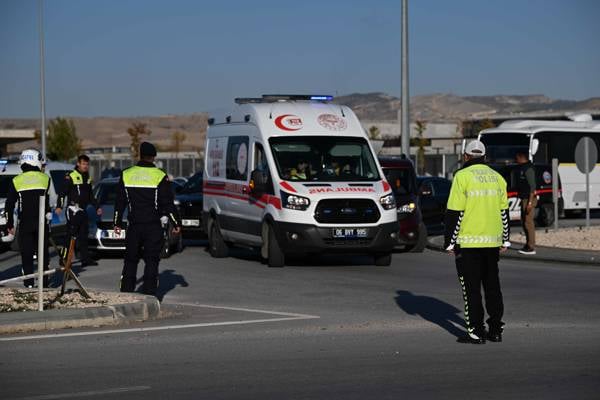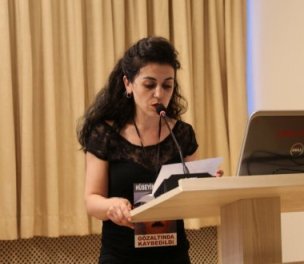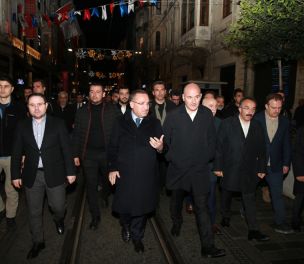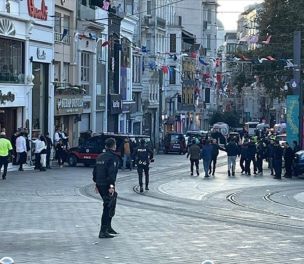Still image from a video by Evrensel shows police not allowing reporters on the avenue.
The media coverage of yesterday's (November 13) explosion on İstanbul's İstiklal Avenue has been mostly limited to the state-run media and statements from government officials following a series of restrictions imposed by the authorities.
The explosion that killed six people and injured 81 others is considered by the authorities to be an "act of terrorism."
CLICK - İstanbul explosion: Live updates
Shortly after the explosion at around 4.20 p.m., the Radio and Television Supreme Council (RTÜK) issued a broadcast ban for TV channels, which covers footage of the incident and people affected by it, as well as the work of security units.
At around the same time, Twitter users began reporting slowed connections. The Information Technologies and Communications Authority (BTK) later announced that it had been applying bandwidth throttling on social networking sites, a method that slows down connections by up to 90 percent.
YouTube, Facebook and Instagram have also been affected by the restriction, according to NetBlocks, a platform following internet censorship globally.
Sharing images and footage regarding the explosion on social media has also been banned. Upon a request by the Ministry of Tourism and Culture, a penal judgeship of peace in İstanbul has banned sharing such posts on social media.
These measures were taken to prevent "panic among the public" and "broadcasting that may serve terrorist organizations," according to Presidency Communications Director Fahrettin Altun.
"We invite media organizations to be responsible, not to rely on disinformation originating from social media, and to take the statements of relevant public authorities as a basis," he wrote on Twitter, while it was virtually unusable without a VPN connection.
Obstacles to reporters in the field
Not only traditional and social media platforms, but also reporters in the field faced obstacles.
The police, who had earlier cordoned off İstiklal Avenue, did not let journalists in, excluding the state-run media and a pro-government news agency.
A video released by Evrensel showed police removing the barriers at the entrance of the street for some reporters, while not answering another journalist's question that "Why is there a difference between press outlets?"
The allowed reporters were from the state broadcaster TRT, the state-run Anadolu Agency (AA) and the İhlas News Agency (İHA), Evrensel reported.
İstiklal Caddesine girişler kapatılırken, alana sadece TRT, AA ve İHA muhabirleri alındı. Diğer gazetecilerin girişine ise izin verilmedi
— Evrensel Gazetesi (@evrenselgzt) November 13, 2022
: Meltem Akyol/Evrenselhttps://t.co/I4LOW3BoBk pic.twitter.com/gVuCfN5i9s
Investigations
The İstanbul Chief Public Prosecutor's Office launched a "terror" investigation into those who shared "negative posts" about the explosion on social media, AA reported.
The police later announced that it had reported the identity information of 25 users sharing "provocative posts" to the relevant authorities.
Türkiye has a history of restricting media coverage and social media platforms following such incidents, but yesterday's practices were arguably even stricter than the previous ones, with the police openly favoring journalists from some outlets and courts banning sharing certain types of images on social media. (VK)




